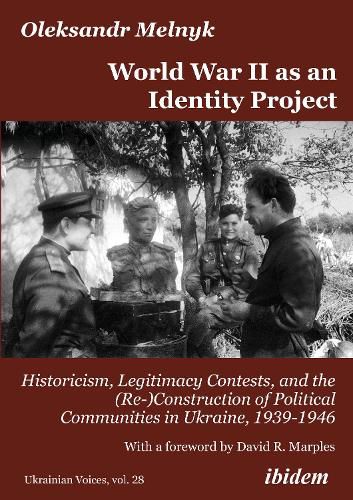Readings Newsletter
Become a Readings Member to make your shopping experience even easier.
Sign in or sign up for free!
You’re not far away from qualifying for FREE standard shipping within Australia
You’ve qualified for FREE standard shipping within Australia
The cart is loading…






This book explores the relationship between history, legitimacy, and violence in the building and breaking of nations and states on the territory of contemporary Ukraine during the Second World War and in its aftermath. At its center are various institutions of the Soviet state. Other states and rival political movements also enter the picture insofar as their acitivities influenced Soviet policies. Methodologically, the study shifts attention from a limited body of normative texts and their creators within the Soviet political and cultural elite to a wider array of practices, organizations, and players engaged in power struggles and production of knowledge about the past in different social domains. Specifically, it brings into focus groups not normally thought of as participants in the production of Soviet memory discourse, notably NKVD officers, Soviet archivists, Ukrainian nationalists, Nazi collaborators, and former partisans in the German-occupied territories.
The book not only demonstrates the complexity of nation-shaping processes, but also restores agency to some seemingly powerless actors.
$9.00 standard shipping within Australia
FREE standard shipping within Australia for orders over $100.00
Express & International shipping calculated at checkout
This book explores the relationship between history, legitimacy, and violence in the building and breaking of nations and states on the territory of contemporary Ukraine during the Second World War and in its aftermath. At its center are various institutions of the Soviet state. Other states and rival political movements also enter the picture insofar as their acitivities influenced Soviet policies. Methodologically, the study shifts attention from a limited body of normative texts and their creators within the Soviet political and cultural elite to a wider array of practices, organizations, and players engaged in power struggles and production of knowledge about the past in different social domains. Specifically, it brings into focus groups not normally thought of as participants in the production of Soviet memory discourse, notably NKVD officers, Soviet archivists, Ukrainian nationalists, Nazi collaborators, and former partisans in the German-occupied territories.
The book not only demonstrates the complexity of nation-shaping processes, but also restores agency to some seemingly powerless actors.